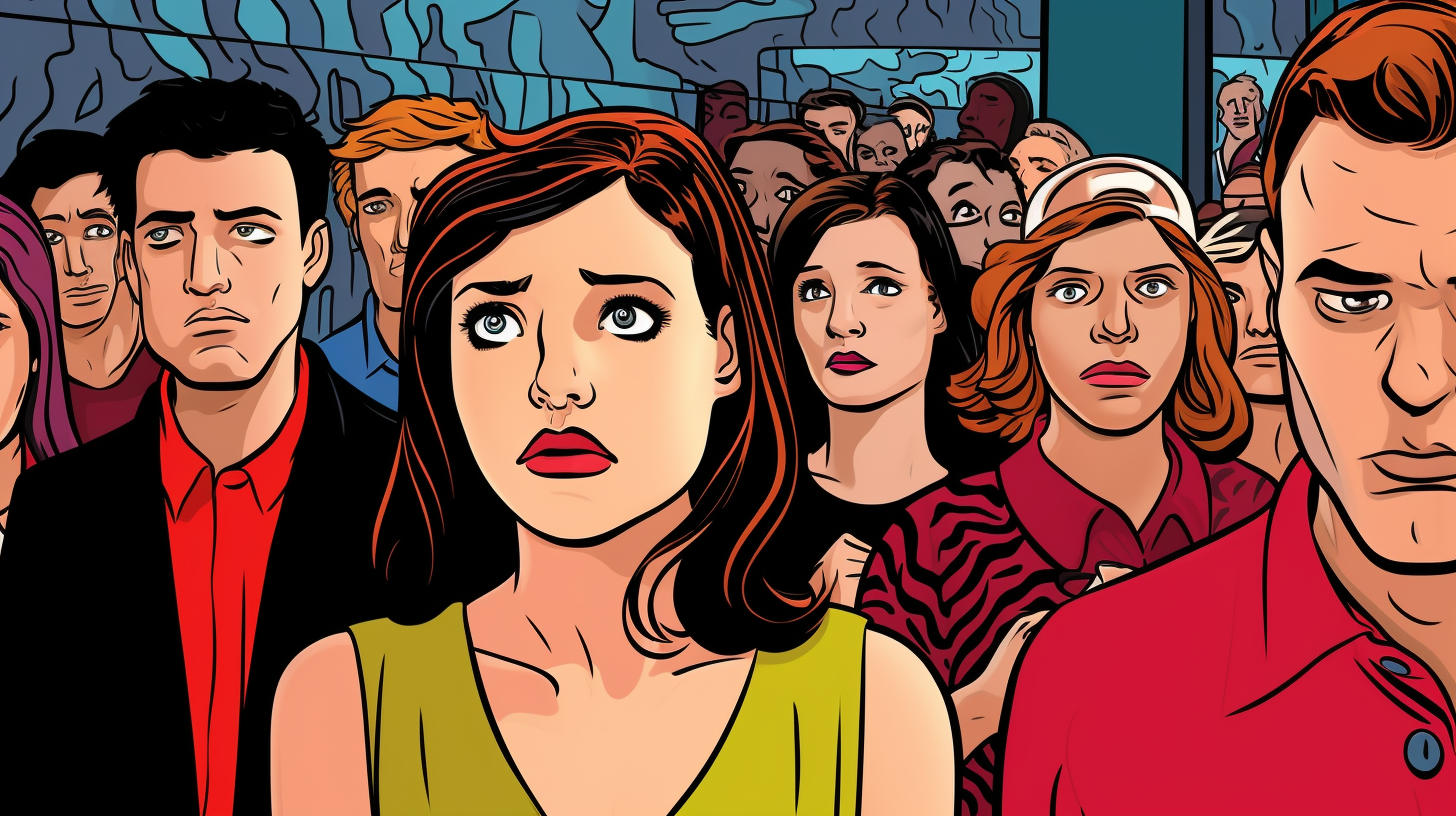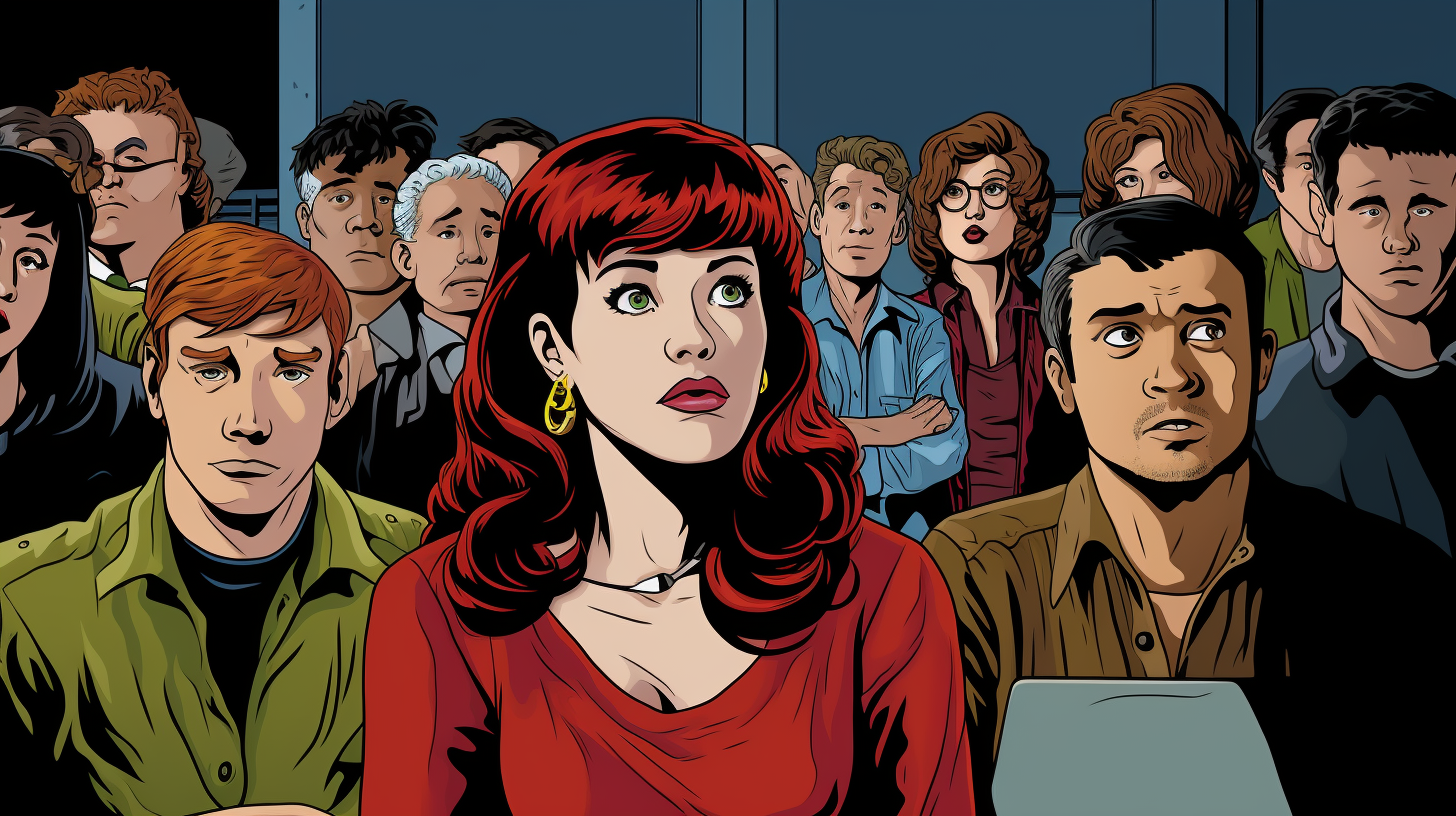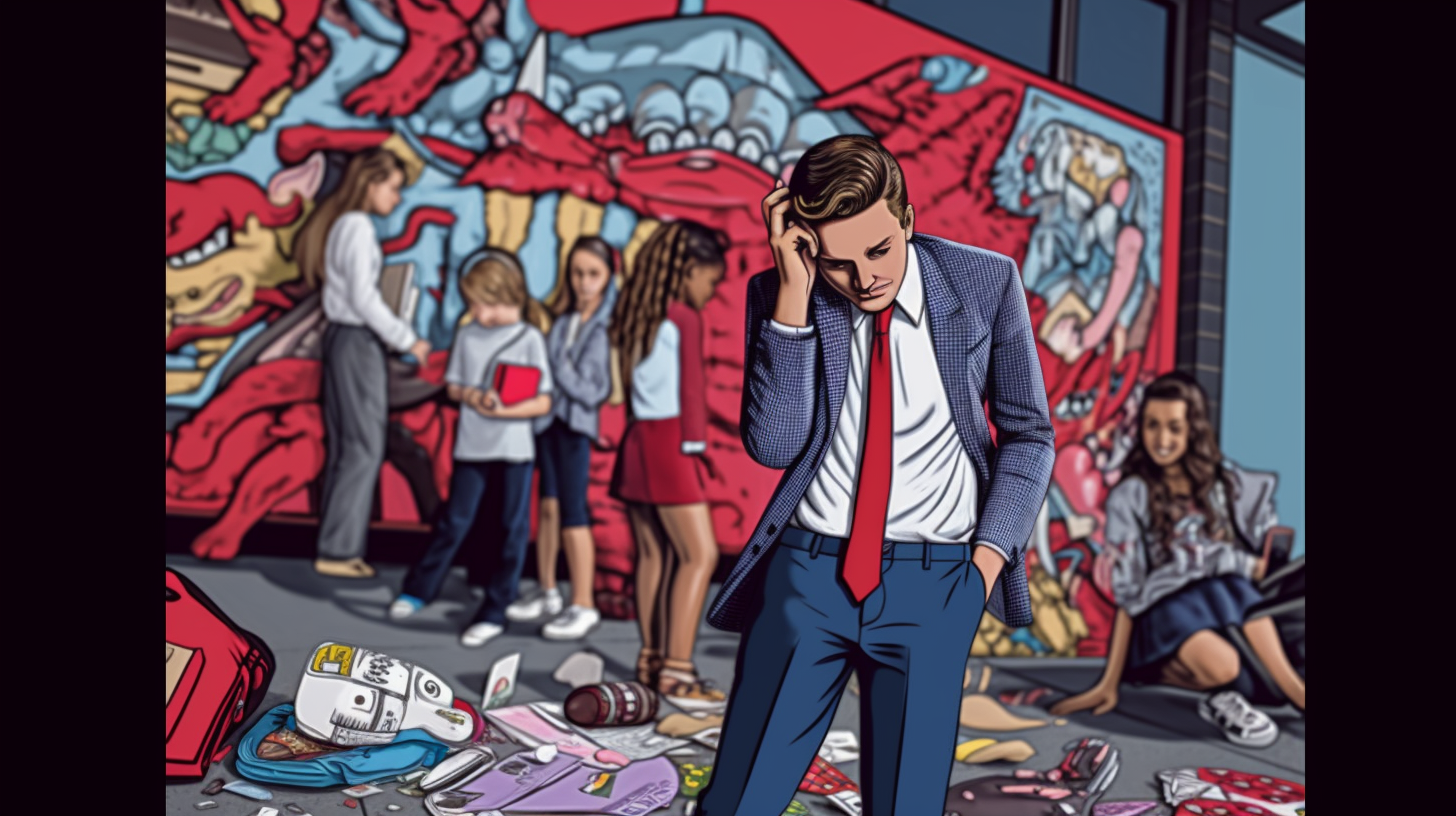Why are you so concerned about what people think of you? 🤔

Scenario: you walk into a crowded room. You’re late. Which means everyone hates you. Or does it?
It’s an idea that has plagued people since the invention of the crowd. The thoughts and feelings of people we don’t know play a huge role in defining how we’re doing. It’s an idea that has become more acute in the post-Covid era, as many of us find crowds more difficult to navigate.
But even before then, why do we attribute so much weight to what people we’ve never met before think about us? In this week’s Brink I’m going to find out.
Metaperceptions 🔭

First, let me clarify what I mean by this idea of being hated by others. Let’s go back to the hellish scenario of arriving late to a crowded room of people who have all managed to arrive on time.
In our minds, we immediately think that everyone else must be judging us negatively for our inability to do something as simple as being somewhere at the right time. We use the imagined perceptions of others to, well, make us feel terrible.
This is called a metaperception, it’s a fantastic encapsulation of that part of our brain we leave blank, except when it comes to constructing an idea of ourselves in the eyes of others. Metaperceptions are guesses on how others feel about us. They are a pure figment of our imagination.
We have little to no information to create these metaperceptions accurately, so instead, we often rely on that part of our brain that likes to give you a good kicking when you’re not feeling great about yourself. It hops in there to paint the most negative image it can - for the overwhelming majority of us - which compounds any other feelings we might have.
But are these metaperceptions true? Turns out they’re not, but not for reasons you might think.
The liking gap 📐

A new study published in Psychological Science took a closer look at this phenomenon to find out whether our judgement of ourselves is mirrored in the judgement of others. Do you know what it found? There is a major disconnect between what you think of yourself, and what others do.
In the study that examined first interactions between strangers, when asked what they thought of the other person, the overwhelming majority came off well. When people were asked what the other person thought of them, they thought they came across a bit rubbish.
The authors call this discrepancy the ‘liking gap’, the idea that we’re more unlikeable than we think.
“We’re self-protectively pessimistic and do not want to assume the other likes us before we find out if that’s really true,” says the study author. “We critically monitor ourselves and regret not telling the joke more smoothly or worry about whether we sound as if we are bragging.”
And it persists over time. The study looked at whether the same thing happened in longer conversations or even longer after the moment had passed. And sadly, the gap persisted. Our metaperception hung around. What does that mean? Well, says the authors of the study, we’re getting in the way of allowing new relationships to form because we don’t think we’re worth knowing. Sad faces all around.
But where does this idea come from?
Like me, please? 🥺

Without stating the bleeding obvious, we are social creatures. Our survival, both in an evolutionary sense, and in a more immediate one, depends on us getting on with other people.
Imagine calling an ambulance because you’d hurt yourself, but you hurled abuse at the paramedics and medical staff. Your care would quickly be cut short.
There is an innate part of our being that is constantly looking for clues about how people feel about us and themselves. It’s the whole reason why emotions are contagious. A case in point: if someone has seen something scary, it pays to be able to embody that fear to flee from the scary thing. Being synchronised with the group helps us survive.
But like all things human, these building blocks can be hijacked, and used to isolate us to avoid the fear of being outwardly rejected.
This seems to happen to men more quickly than it does to women, who maintain a healthier ability to make friends long into later life. Ironically, in the study, women reported more pronounced negative metaperceptions than men did. This suggests women might be better at tolerating the uncertainty of not being liked better than men do.
But enough men bashing for one moment. What’s the solution to all these negative talk? The simple answer is: coming to terms with the idea that no one seems to think about you all that much.
No one cares 🤷

Back to the study once more. What the authors found was that people were so consumed with what people thought of them, they didn’t pay all that much attention to how they were behaving in the first place. That’s not to say you can be a complete arse, but the margin between likeable and loath’able is surprisingly broad.
Let’s go a bit further with this. In psychology there’s an idea around which locus of control we focus on. There are external locus (locii?) and internal ones. The former is about things beyond our control that we fixate upon, versus the latter which keeps control close to home. So an external locus of control woud be, ‘it rained on your birthday’, which is terrible but you have no ability to control it, but you can let it make you miserable. An internal focus would be, ‘it’s raining on my birthday, so I’m not going to have a party outside, I will control the things I can control.
Do you know where people are the happiest? When they can focus on the things they can control (they focus on an internal locus of control) as opposed to external ones.
Bringing that back to the study at hand, to avoid murder by metaperception, we will fare far better if we choose to spend less time worrying about the things we can’t control (other people) and more on the stuff we can, like being late.
In essence, you’ll make more friends the less you think about what they think of you.
Things we learned this week 🤓
- 👻 Why do we love horror movies so much?
- 🍔 Fried food increases your chances of becoming depressed.
- 💏 You’re more attracted to people that like look us than you think.
- 💇♀️ Competitive women recommend their friends get short haircuts to make them less attractive.
If you would be so kind 🙏
I’m building out my content on video and podcasts, and I’d love your support.
🤜 Hit that subscribe button over on YouTube.
🤜 Tune into my podcast every week.
I love you all. 💋

